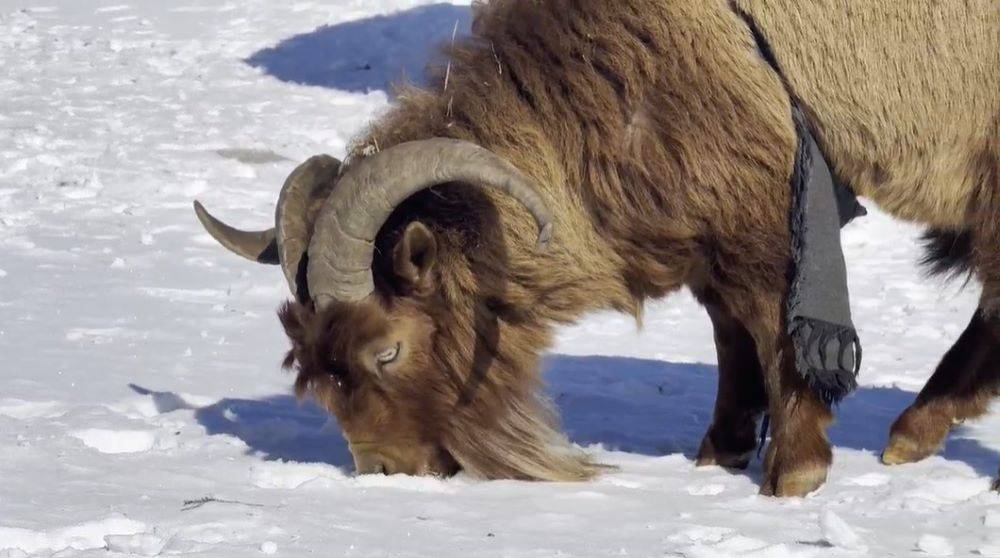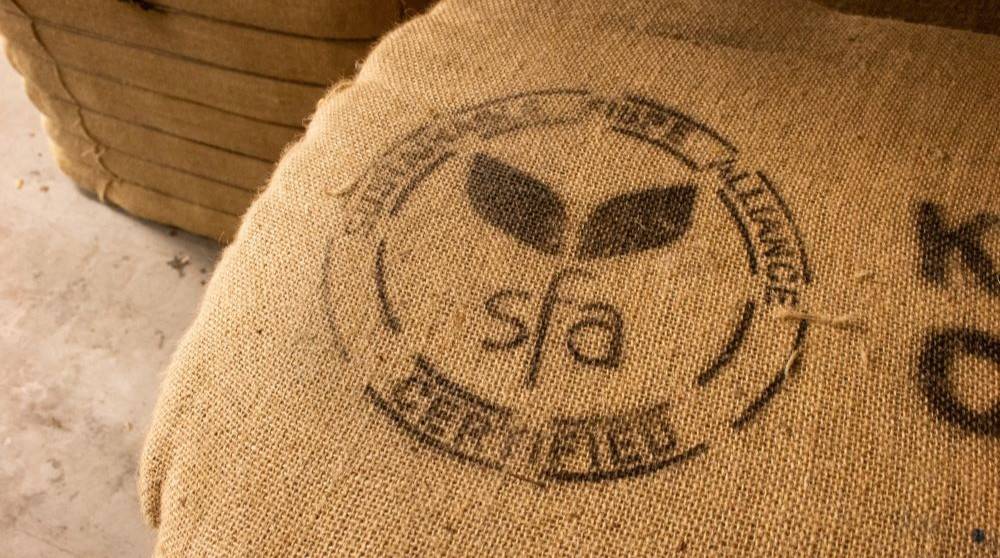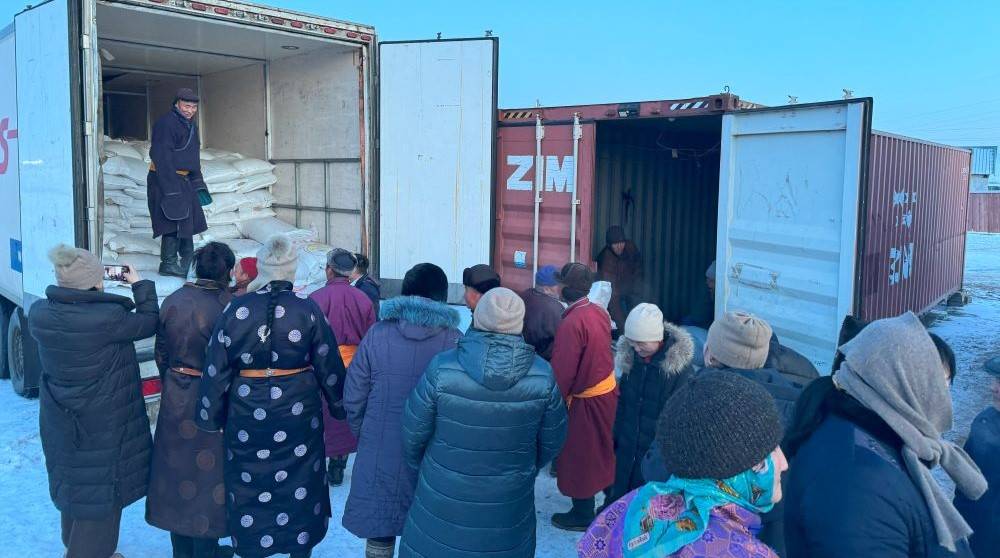This year, in 2024, the global cashmere supply chain experienced an unanticipated challenge due to the natural climate disaster that struck large regions of Mongolia this past winter and early spring. As the world’s second-largest supplier of cashmere, Mongolia was severely affected by the extreme winter weather event known as Dzud, specific to the regions of central and east Asia. Heavy snowfall covered entire regions, forming ice floors underneath the snow drifts, hindering herds from reaching grass and forage, resulting in an over 10% loss of livestock for the country.
According to the 2024 Dzud – Livestock Loss report from the Ministry of Food, Agriculture & Light Industry of Mongolia (MoFALI), 11.5% of the country’s livestock perished due to malnutrition, stamina, and extreme cold, totalling over 7.44 million livestock across the country. Of this total, an estimated 2.5 million goats were recorded to have been lost.

As we continue to extend our support to the affected herders in Mongolia, it is essential to recognise the broader implications for the global cashmere supply chain. This disaster has led to a notable increase in raw cashmere prices due to reduced volume and delayed harvests. During the cashmere season of 2024, the price for raw cashmere fibre rose to 185,000 MNT per kg (approx. £40-£45), up from 165,000 MNT per kg (approx. £36-£38) the previous year. This price hike has resulted in lower purchase quantities by some producers.
Several factors have contributed to this year’s cashmere shortage, some of which are highlighted below:
1. Livestock Loss
The accumulated loss of goats, accounting for around 20% over the past two consecutive years, has drastically decreased the volume of raw Mongolian cashmere available to the market. In 2023, the ‘SFA-certified’ cashmere volume was 1,322 tonnes, while this year, it has reduced to 600 tonnes only, with a maximum expected volume of around 800 tonnes.
2. Delayed Harvesting
The freezing temperatures and longer-lasting cold weather have caused delays in the natural shedding time of cashmere goats, resulting in lower output and decreased fibre quality, with more coarse hair mixed into the greasy fibre.
Vandandorj Sumiya, SFA Mongolia’s Country Coordinator, explains, “As combing is delayed, more coarse hair will be loosened, and greasy cashmere will have higher coarse hair content, thus after dehairing, the clean fibre content will be lesser than that of normal years.”

3. Export Ban
The Mongolian government’s upcoming export ban on non-dehaired cashmere, originally expected to be effective from the 1st of July 2024, could have prompted hasty purchases by non-national processors and driven up prices. However, the government has extended the effective date for this ban to July 2025. Nevertheless, this change would not affect processors supplied with dehaired cashmere from ‘SFA-certified’ sources in Mongolia. Some processing factories scheduled for SFA Clean Fibre Processing Standard audits may experience delays this year due to low fibre volumes, which should only cause minimal impact on the sector given the extended export regulation deadline.
4. Climate Risk Resilience
Triggered by climate change, the frequency and severity of natural events such as Dzud have begun to increase. However, with this increase in Dzud occurrences, effective coping and adaptation strategies are still lacking in some of Mongolia’s herding communities, especially in the country’s most remote areas. Climate risk resilience has become a key topic for the SFA this year and was the main theme of discussion during the annual SFA Mongolia Conference, held in Ulaanbaatar at the beginning of September 2024.

Each of these factors has played its part, causing a potential ripple effect along the cashmere supply chain and throughout the market this year.
The SFA continues to work closely with herders, supporting them with long-term resilience and sustainability programmes, providing better market access, and mediating preferential financing. Through the continued support of our Members and Chain of Custody Participants, who rallied together at the beginning of the year to provide much-appreciated disaster relief funds, our efforts are now progressing towards establishing the SFA’s Community Development Fund. The fund aims to support targeted interventions to mitigate natural disaster impacts, such as Dzud, improving livelihood resilience and sustainability in herding communities.
The proposed activities of the SFA’s Community Development Fund address the critical issue of recurring climate disasters and the severe impact on herder livelihoods, such as livestock populations, mental and physical health, and providing essential support for female herders and herding communities that have been the most adversely affected. It includes:
- Providing immediate financial support to fulfil the needs of food and basic amenities for herder communities.
- Supporting the community to restock their herd as their main source of income and livelihood activity.
- Research and action for continued support to build resilience for such situations through access to finance, livestock insurance, and capacity-building programmes.
Get Involved
By establishing the SFA Community Development Fund, the SFA encourages its Members and Chain of Custody Participants to work together to reduce the impact risk of natural disasters within the supply chains, such as the effects of Dzud and drought. Together we can enhance effectiveness, support socio-economic stability, and strengthen cashmere supply chain resilience against climate change.
Want to be a part of this crucial movement?
Contact us now to start making meaningful changes to strengthen the supply chain and support herder livelihoods. Email info@sustainablefibre.org
To learn more about this year’s Dzud disaster and our efforts to support herder communities, read our previous articles below:

Tamir Bud
SFA COMMUNICATIONS OFFICER
24 September 2024

